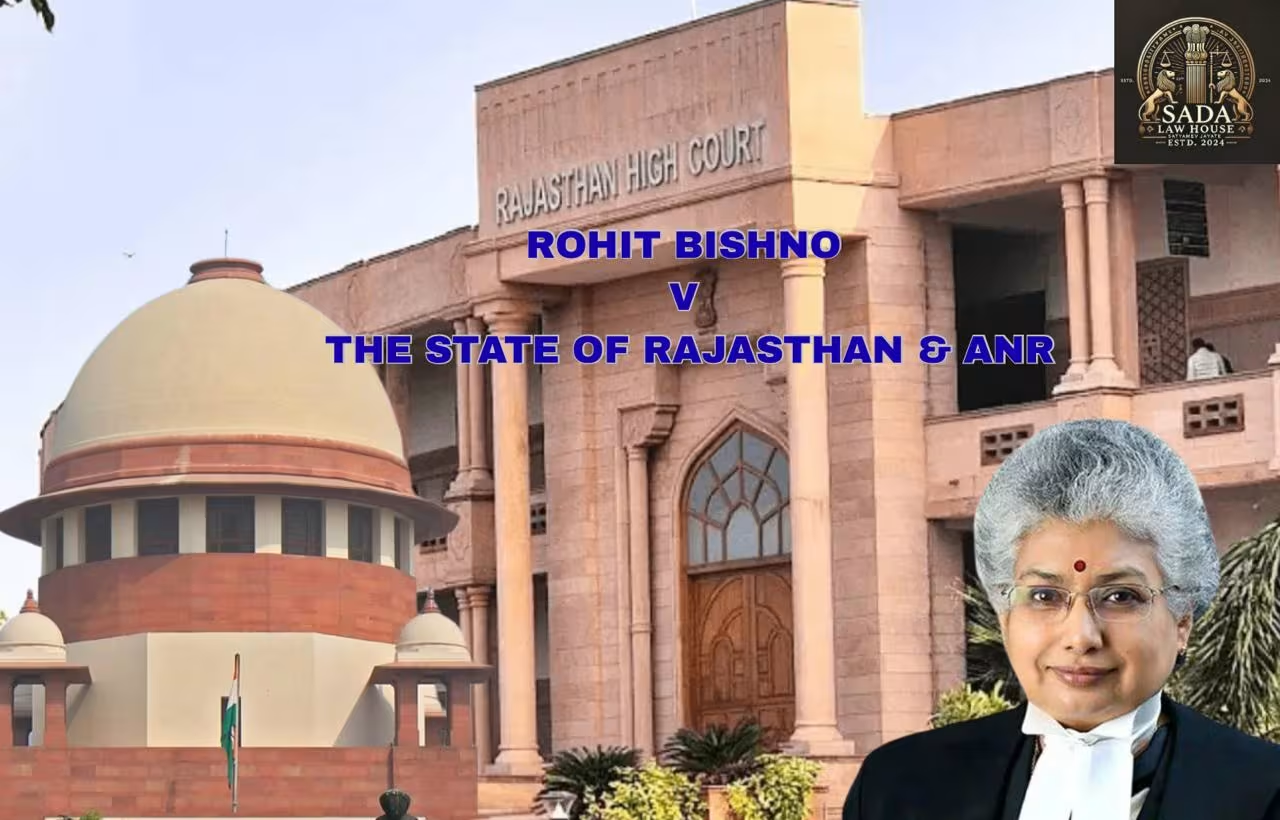Rohit Bishnoi v. The State of Rajasthan & Anr.
- Nisha Kumari
- 10 October, 2025

Introduction:
The case of Rohit Bishnoi v. The State of Rajasthan & Anr. came before the Supreme Court of India through Special Leave Petitions challenging the Rajasthan High Court’s decision to grant bail to the accused in a serious murder case, allegedly an honour killing. The appellant, Rohit Bishnoi, the brother of the deceased, sought the cancellation of bail, contending that the High Court had failed to consider the gravity of the offence, available evidence, and principles of justice while granting bail.
Background:
The case pertains to the murder of a young man, reportedly in an honour killing linked to a relationship disapproved by the accused, who were relatives of the woman involved with the victim.
An FIR was registered under Sections 302 and 34 of the Indian Penal Code (IPC) and relevant provisions of the Arms Act against three accused — Vikas Vishnoi, Budharam, and Rajendra Bishnoi.
The Rajasthan High Court granted bail to all three accused, relying heavily on the statement of a hostile witness and ignoring other significant evidence. Dissatisfied, the victim’s brother, Rohit Bishnoi, approached the Supreme Court challenging the legality and reasoning of the High Court’s bail orders.
Key Developments:
The High Court had granted bail to the accused in a casual and cryptic manner, without substantial reasoning or evaluation of evidence.
The Supreme Court found the bail orders to be legally unsustainable and contrary to established principles of bail jurisprudence.
The Court emphasized that heinous crimes like murder require detailed judicial scrutiny before bail can be granted.
It was noted that the High Court had ignored material evidence and relied solely on a single hostile witness.
The Supreme Court reiterated that judicial discretion must be exercised judiciously, not arbitrarily, particularly when public interest and victim rights are at stake.
Issues:
Whether the Rajasthan High Court was justified in granting bail to the accused in a serious offence of murder (alleged honour killing) without adequately considering the gravity of the charges, the evidence on record, and without providing detailed reasoning in its orders?
Current Status:
The Supreme Court set aside the Rajasthan High Court’s bail orders and cancelled the bail bonds of the accused.
The accused were directed to surrender within two weeks.
The Court reaffirmed that bail in heinous crimes should not be granted lightly or without adequate reasoning.
Conclusion:
The Supreme Court concluded that the Rajasthan High Court erred in granting bail in a serious case of alleged honour killing. The judgment reinforced the principle that bail decisions must be supported by clear reasoning and proper assessment of evidence. It highlighted the importance of judicial accountability and sensitivity when dealing with offences that have grave social implications. The Court’s decision upholds the sanctity of reasoned judicial orders and ensures public confidence in the justice system.
Case Laws






